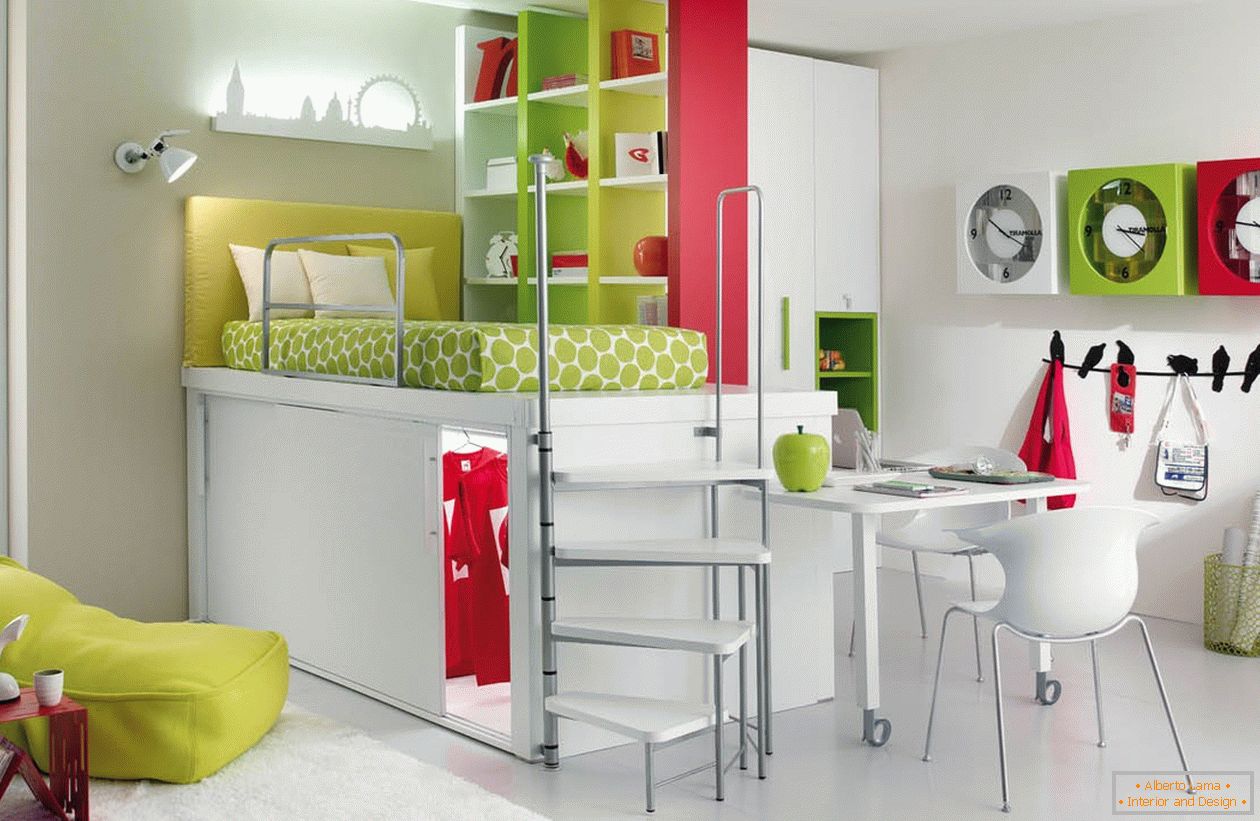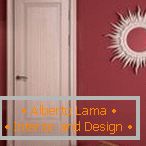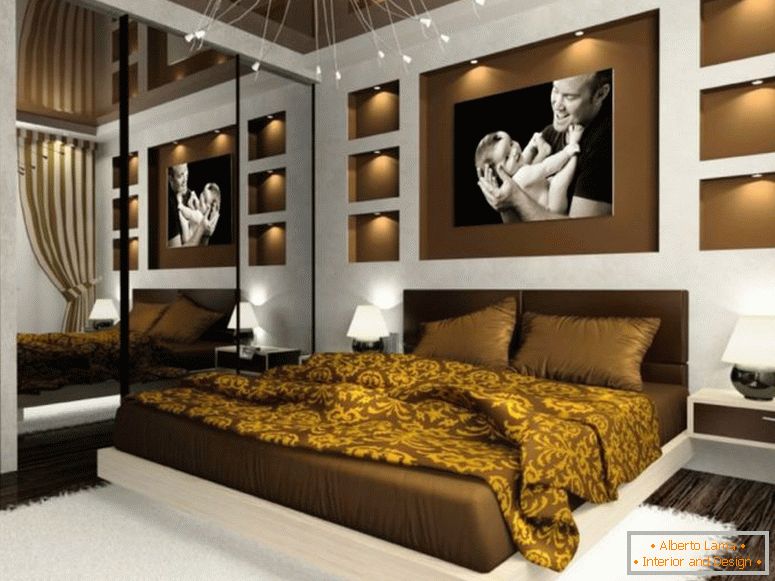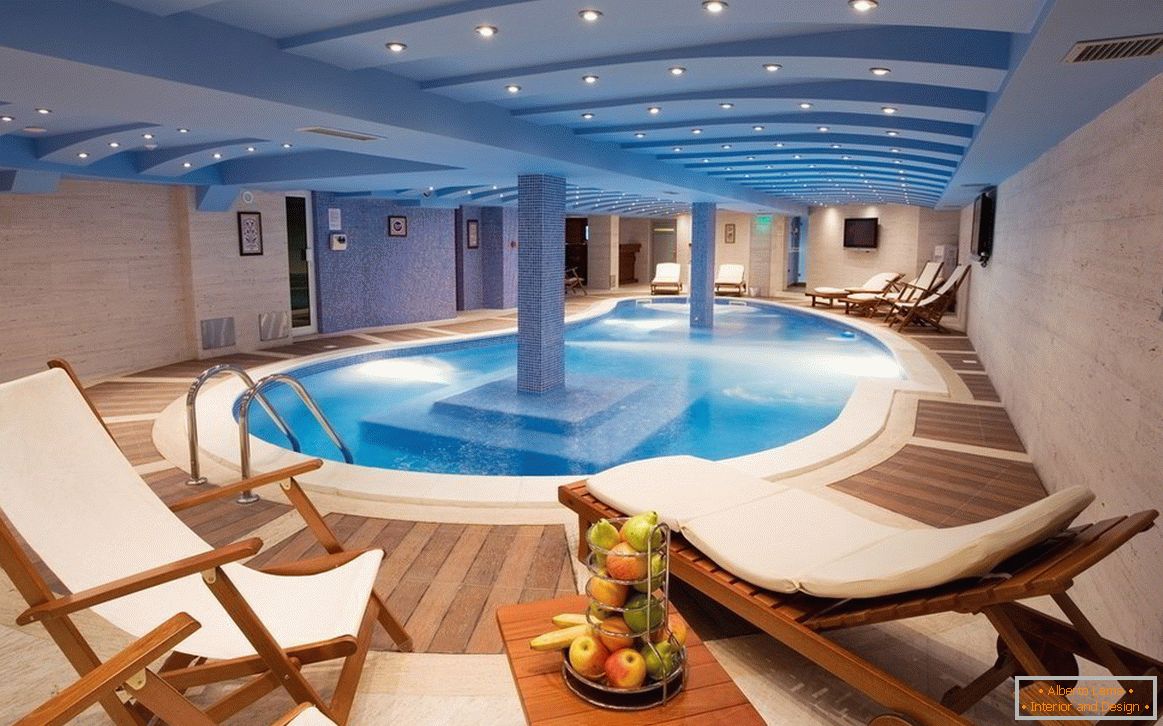
A small or large pond on the territory of a private house is a great idea, especially on hot summer days. A couple of decades ago, the private pool was the subject of an unprecedented luxury. Currently, such "water reservoirs" often allow themselves a middle class, because such facilities give an opportunity not only to brag to their friends with their prosperity, well-being, but also to spend time with health benefits. How to best design the pool design, where to place it, what shape, size, depth it is better to design, the advice will be given by experienced designers.
By seasonality of use:
- summer;
- winter;
- combined.
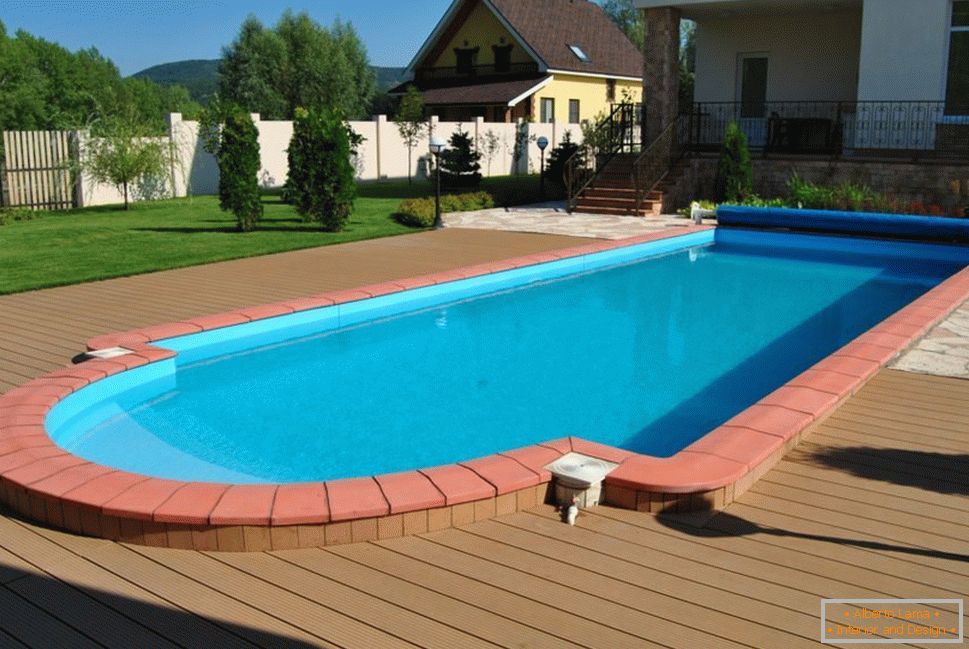
By type of construction:
- elevated;
- buried;
- Semi-deepened.
By design, "domestic seas" exist with overflow, skimmer water purification systems. The first look aesthetic, work better, are used in public places. The second is cheaper, easier to install, used mainly in small reservoirs.
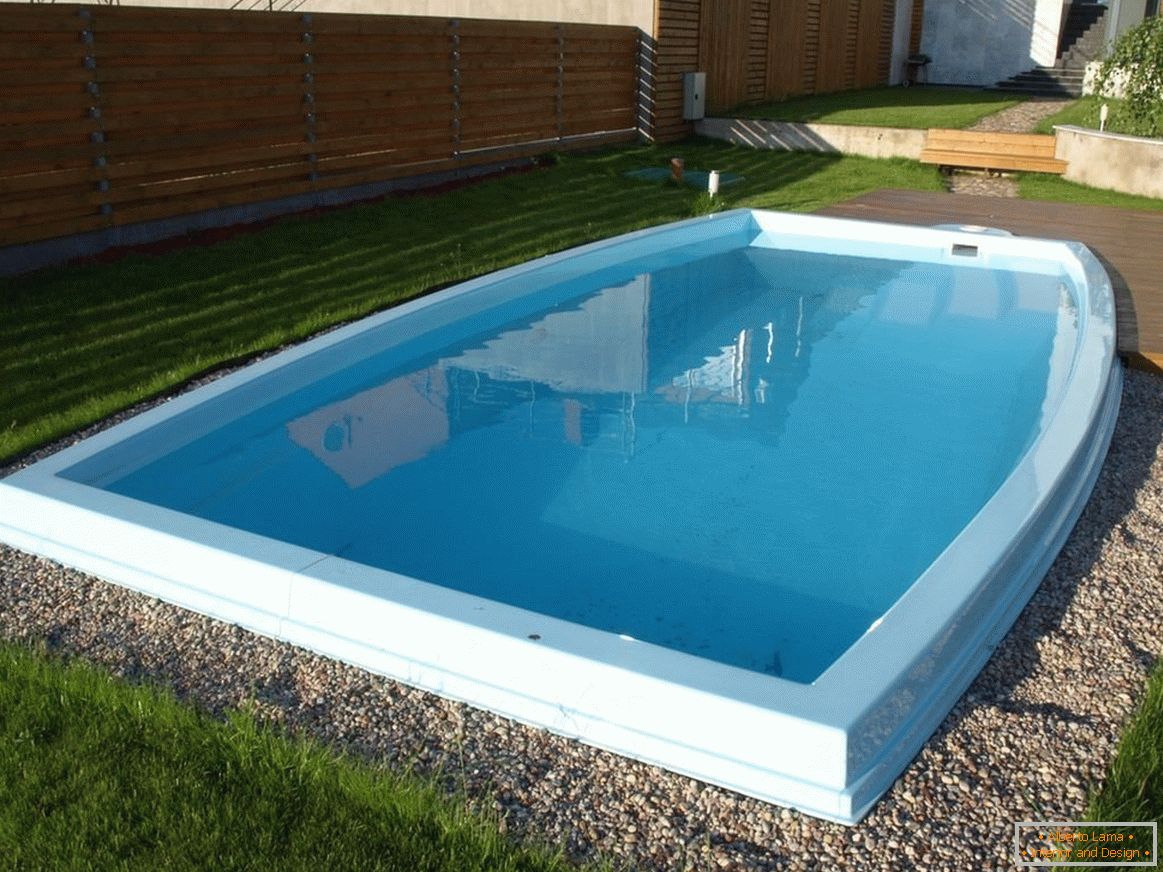
According to the form:
- round;
- oval;
- square;
- rectangular;
- asymmetric.
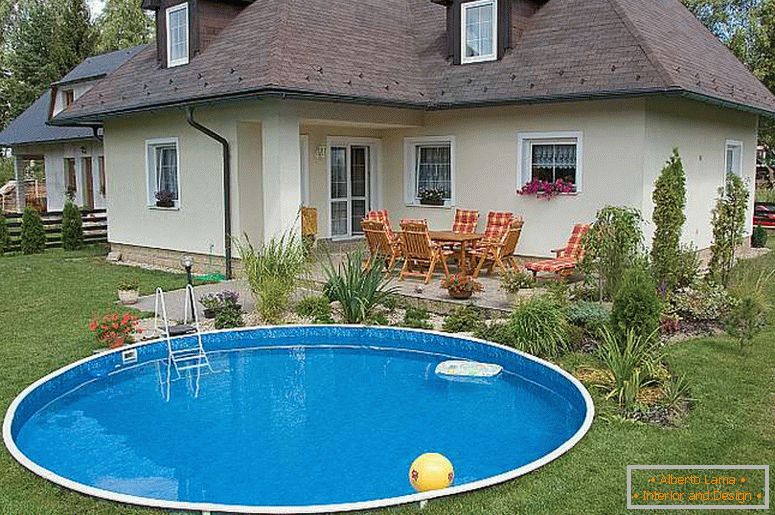
Depending on the material of manufacture:
- from concrete;
- fiberglass;
- polypropylene;
- steel.
For suburban areas of a limited area are purchased inflatable, which are easily removed when no longer needed.

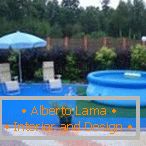
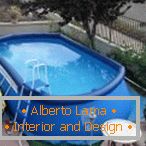
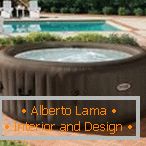
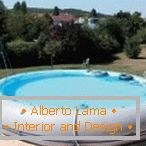
Variants and rules of arrangement of the pool in the room
Before the construction of a reservoir, it is necessary to determine the shape, size, location. It is more convenient, most practical, to place it on the first floor of the building, in a semi-basement room. It is better to provide for this at the design stage, because if there is a violation of the existing building structure, there is a danger of collapse. Unlike the outdoor pool, water in the home does not need to be changed frequently, heated. For an indoor pond, a heated annex to the house, a separate structure, is sometimes created.
Pluses of the pool in the house:
- do not often disinfect, purify water;
- you can swim all year round;
- no conservation is required for the winter;
- Private pool - hidden from prying eyes.
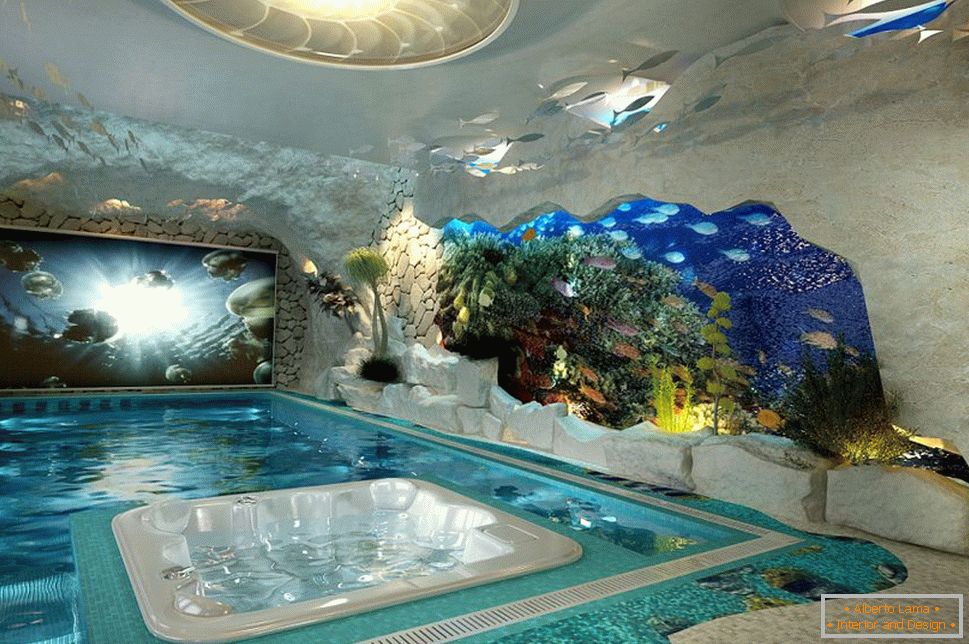
Minuses:
- high humidity in the room - ventilation is needed;
- Design should be done in advance;
- additional costs for lighting.
Access to the premises with a reservoir is restricted to children, pets, in order to avoid accidental drowning.
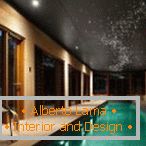
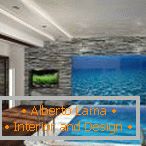
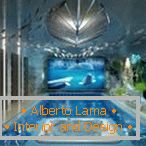
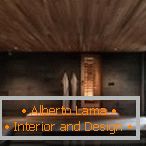
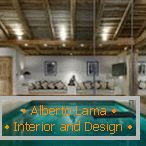
Outdoor swimming pool
The summer pond will pleasantly refresh, cheer up with a hot day. Water in a street pool will often have to be cleaned, most of the year it will be cool. To make the surface less dirty, it is closed with a special roll, solar film. For swimming in cold weather, a heated pavilion of polycarbonate is mounted above the pond. Water supply systems for an open reservoir are preserved for the winter.
Pros of the outdoor swimming pool:
- there is an opportunity to build after the erection of the house;
- in the summer the sun perfectly warms up the water;
- the size is limited solely to the area of the adjacent territory;
- you can swim in the countryside, immediately sunbathe.
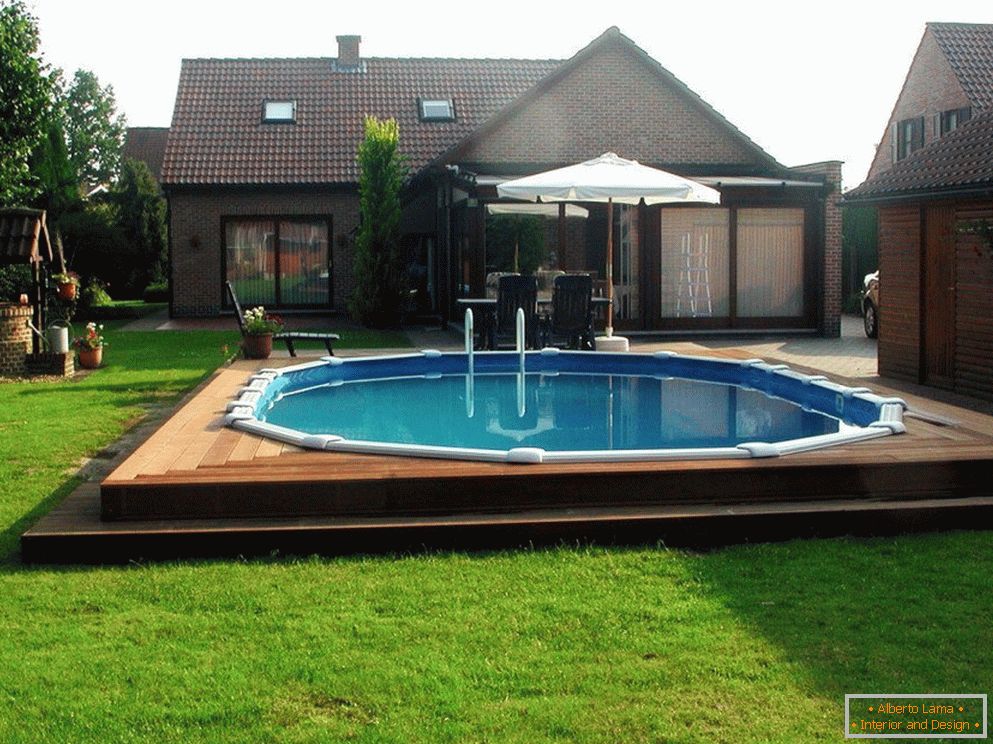
Minuses:
- without heating the water will be warm only on summer days;
- will often change filters, disinfect;
- you need to remove debris from the surface - fallen leaves, insects.
Have a pond in the warmest place of the courtyard, on the south side of the house. When there is no such possibility, from the northern winds it is protected by a high fence, a fence. It is better to choose a place just above the general level of the site, at maximum distance from trees, bushes - so less dust, dry plants, etc. will enter the water.
If the house has children, pets, the pond is provided with fences so that no one drowns.
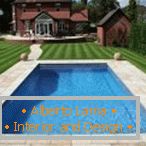
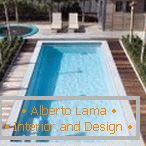
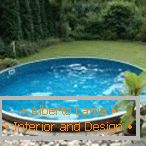
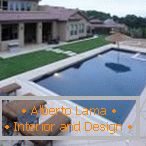
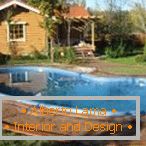
The shape of the pool and the depth
The form is chosen any, it should be well suited to the form of the room, the suburban area. The larger, deeper the "home sea", the greater the cost of its construction, maintenance. If you just plan to splash-dip, then the minimum sufficient dimensions - 3 m. At 4 m., Depth - up to 1.3 m. To fully swim together, it will take at least 8 m to 4.5 m, depth - from 1 , 4 m. If it is supposed to dive, especially from the curbstone, the depth should be increased to 1.7 m. For bathing the whole family make a pond 5 m. At 10 m. With variable depth.
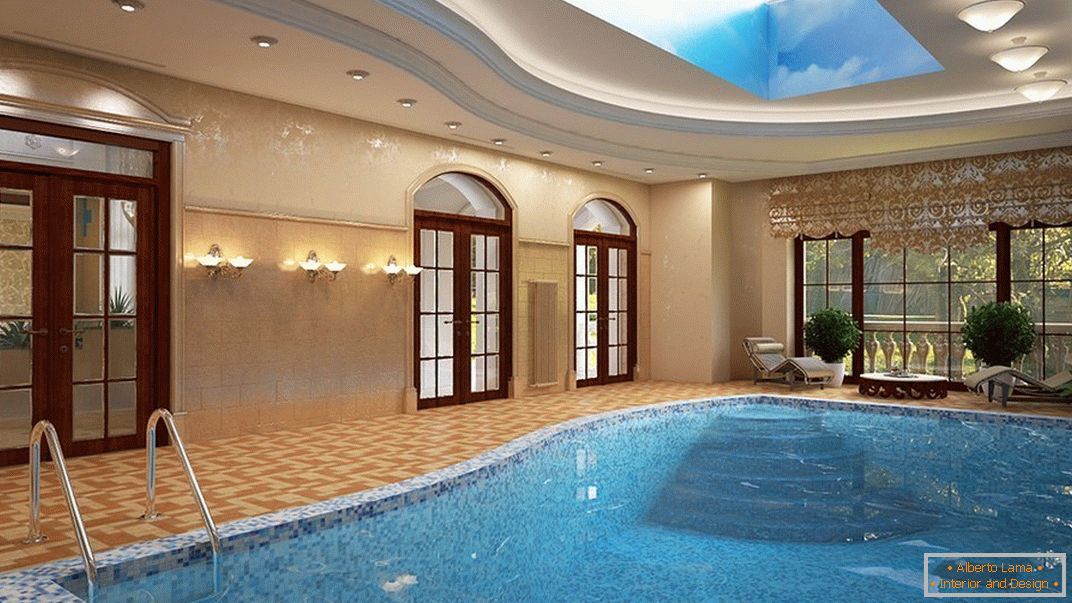
The most common forms are:
- Angular - most often concrete structures;
- in the form of a kidney - concrete;
- round - metal, inflatable;
- Oval - concrete, made of metal;
- in the form of a crescent - concrete;
- rectangular, square - from various materials;
- with rounded corners - usually finished plastic.
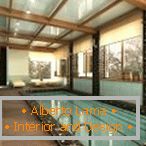
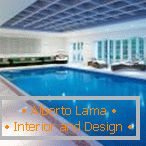
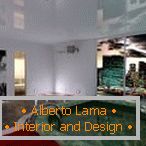
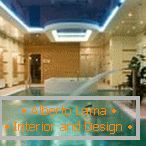
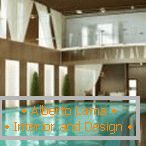
Rectangular or square
"Angular" options are easy to fit into the design of a standard plot of land. Concrete, metal construction is stationary, frame models require the assembly of the base on which the cup of PVC film, metal is fastened.
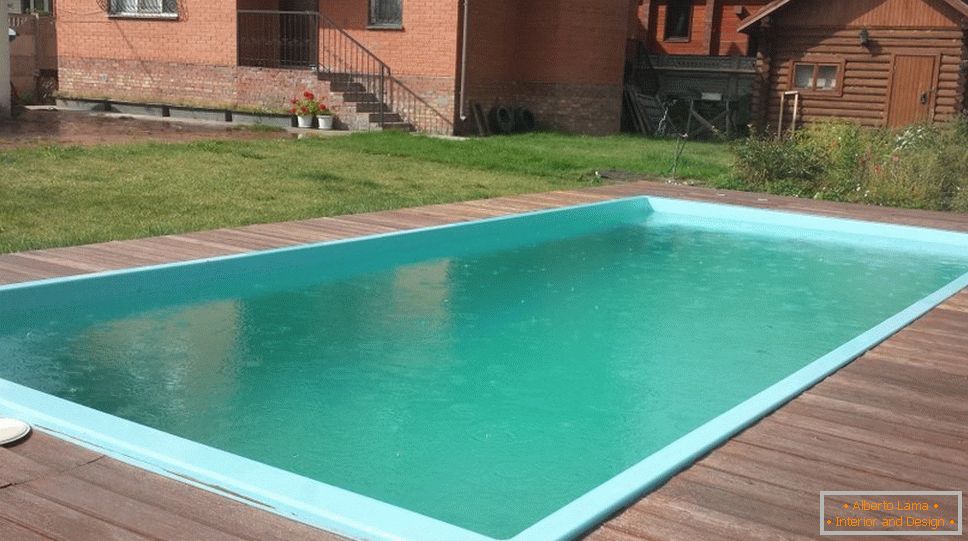
Advantages of this form of pond:
- looks good almost anywhere;
- stationary easy to build with their own hands;
- a variety of materials of manufacture.
When digging an excavation independently, it is made 15-20 cm longer on each side than the future bowl.
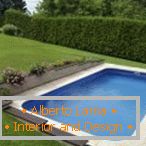
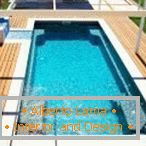
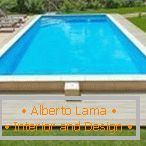
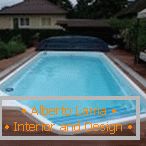
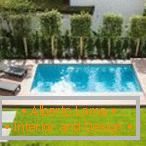
Round and oval
Oval, round basins are made of concrete, metal, inflatable, plastic (composite, polypropylene). This "sea" looks great in the heart of the modern countryside garden. When placing in a house, placing under a pond is also recommended to make a rounded shape. If the bowl is inflatable, then fill with water at least 90% - otherwise it will not be enough. To create a "permanent" water reservoir in concrete in the form of a regular circle, you will have to try a little. Plastic is less durable, it can not be mounted in an already constructed room.
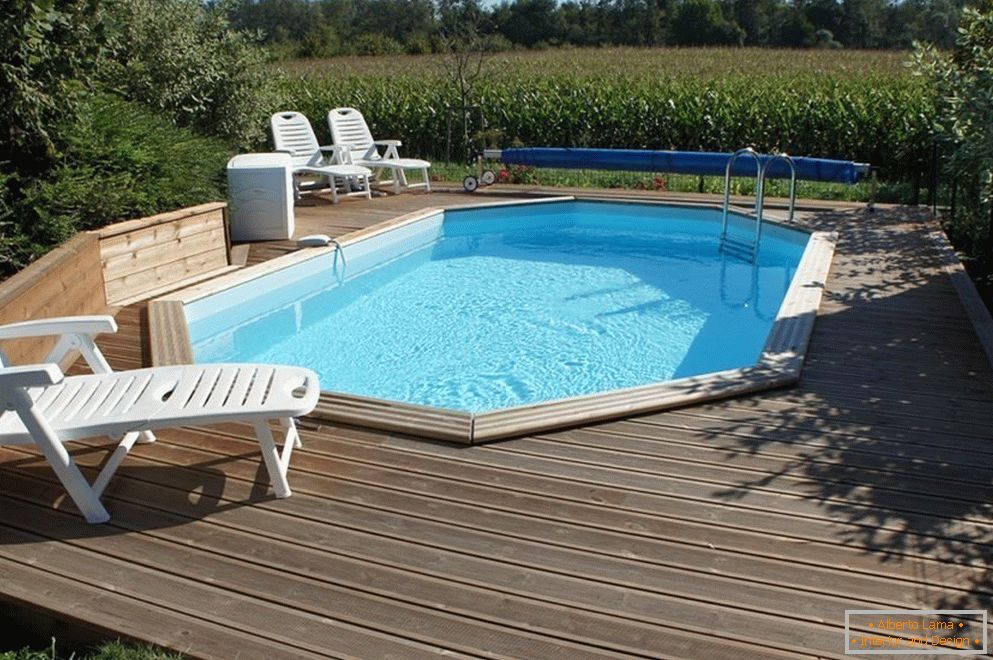
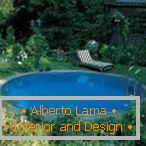
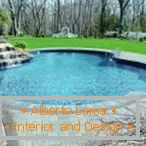
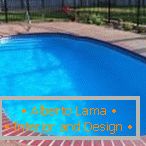
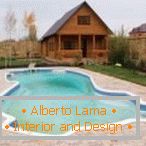
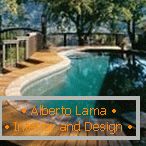
Unusual forms of swimming pools
Most often they are asymmetric in shape - such a pool helps create a simulated wildlife in the room. On its shores are planted a variety of large plants, when placing houses - exotic trees in flowerpots, boxes.
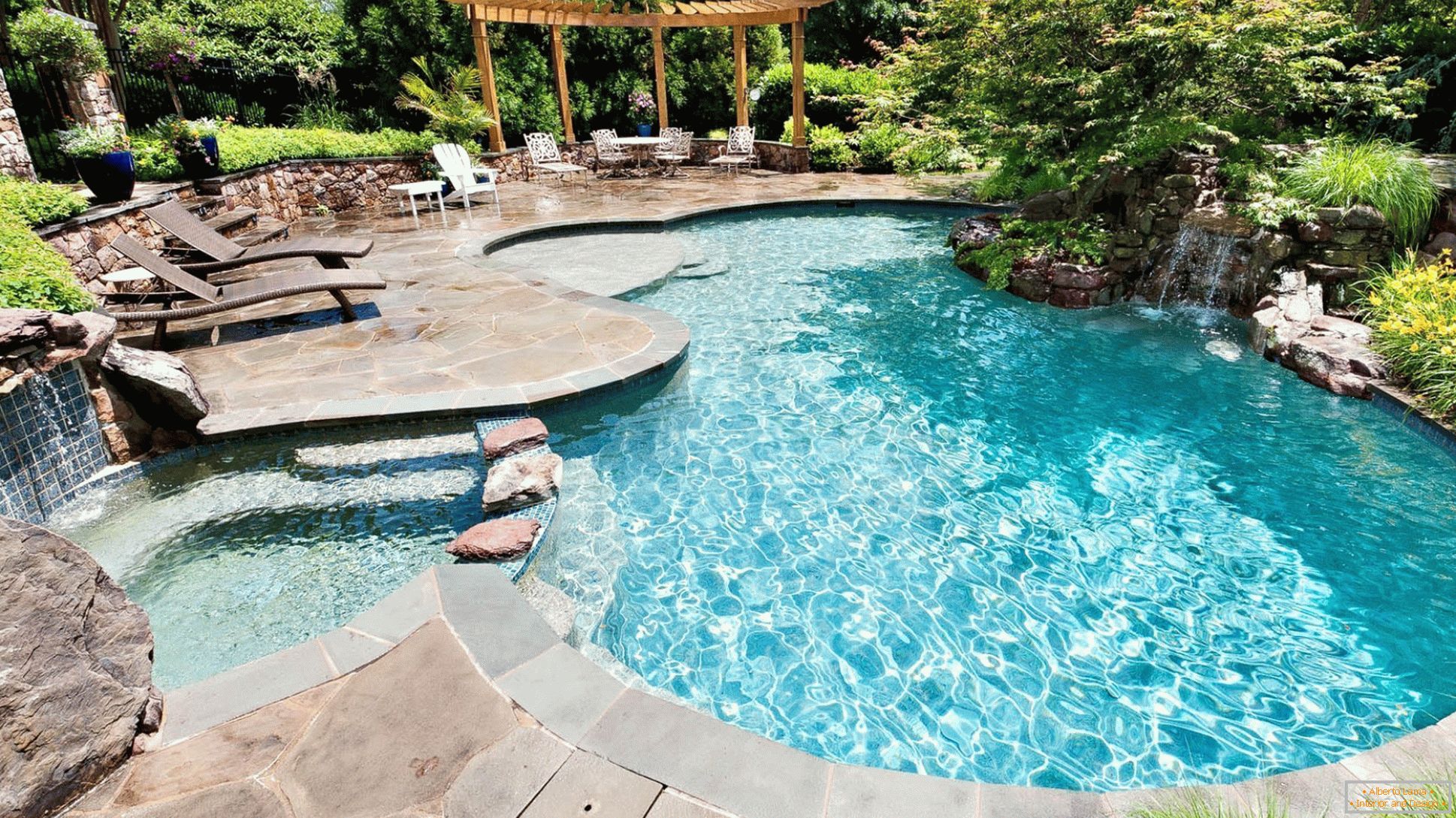
Depending on the hobbies, preferences of the owners, it can be in the form of:
- musical instrument - guitar, violin, piano;
- Palette, with painted on the bottom paints;
- children's plump palms, feet;
- a snowman, a cartoon hero, a fish body;
- clouds, clover leaf;
- stars, hearts, triple "eight";
- L-shaped, C-shaped, S-shaped.

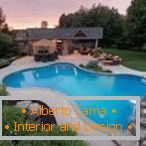
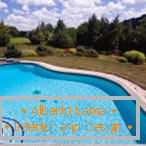
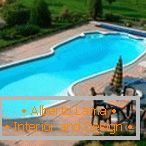
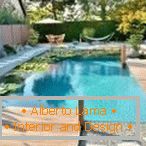
Overflow pools
Usually intended for public places, where there are many bathers. In reservoirs of such a plan, water is much cleaner than in others, due to the presence of an overflow tank. It is fed into the filter through the drain grid, due to the rising water of the bottom layers, the bottom is cleaned qualitatively, and not only the surface. A full shift is required once every three to four years, depending on the number of people bathing. The water masses do not stagnate, they do not "sour", but the cost of the construction is higher, in comparison with the skimmer reservoir, space is also required more.
Read also: The project of landscape design of the site: the stages of compilation, norms and rulesThe approximate scheme of arrangement of the "artificial sea" of the overflow type is shown in the picture below, where:
- filtering station;
- the disinfecting device;
- a station for reducing the level of LV;
- dosing station-coagulant;
- control buttons;
- return nozzles;
- drain channel with a ladder;
- overflow tank.
Among other things, in pools of this type, chemicals used for purification and disinfection are significantly saved. The circulation of water is close to the natural environment.
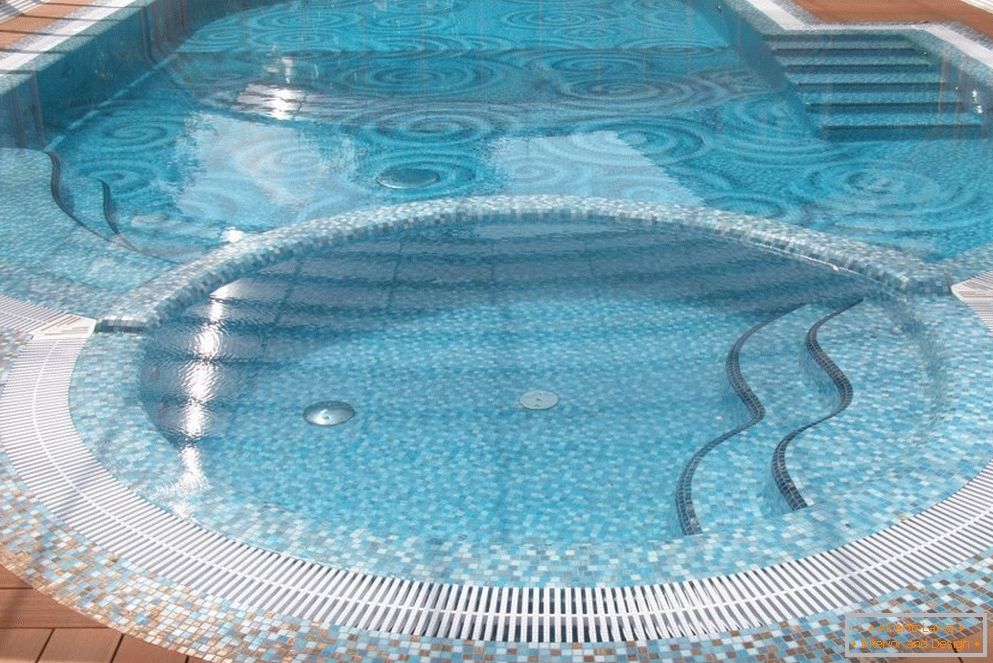
The pool is one, the depth is different
If the family has small children or adults who can not swim, then a different level of the bottom is made in the pond. The greater the maximum depth, the more it will be necessary to spend on improvement - first of all, digging a foundation ditch. In the figured basin it is easier to make separate zones with different water levels: for children - 50-100 cm, for adults - 120-170 cm. The picture below shows one of the options for creating a multi-level "sea", with buttons for controlling additional functions.
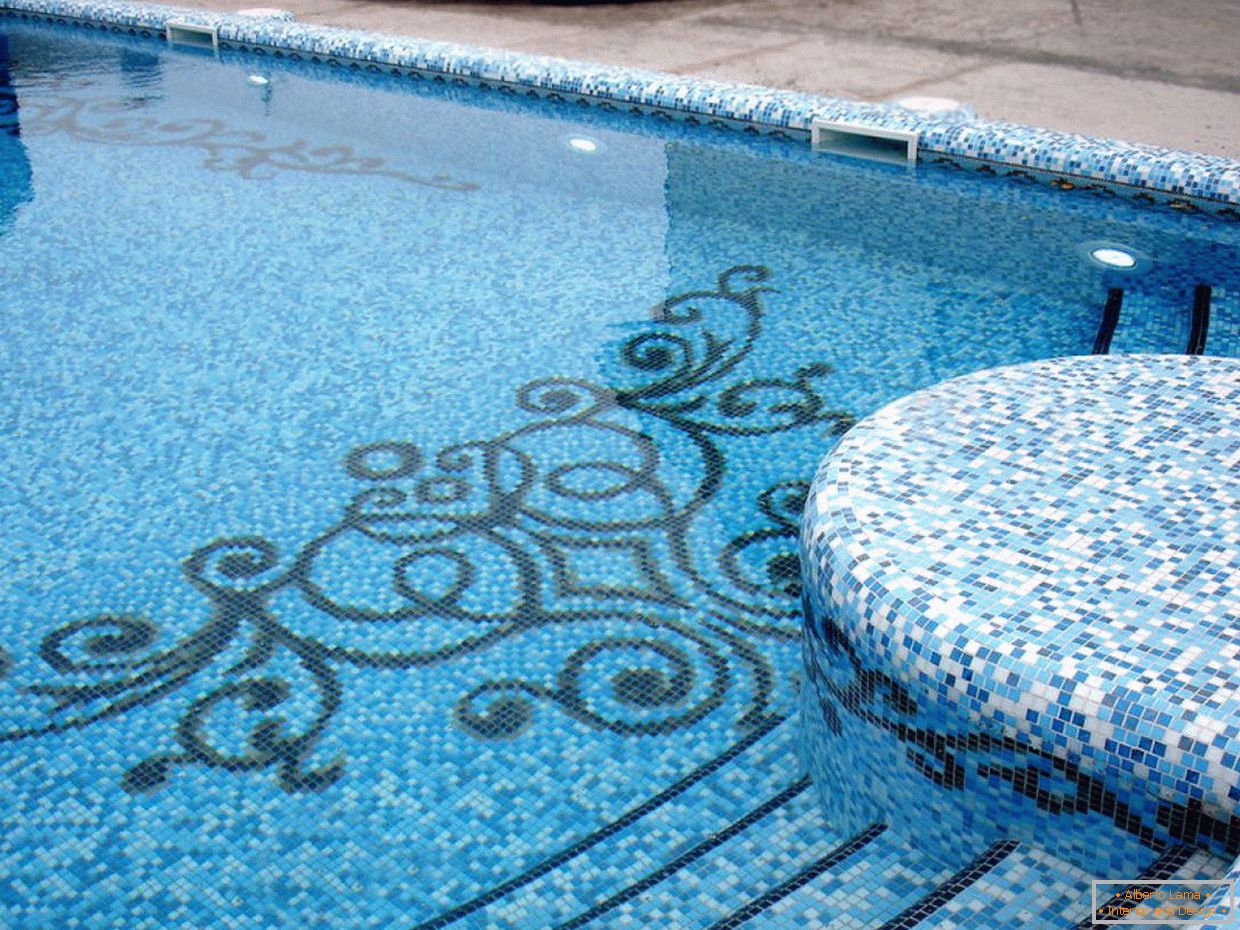
Lighting and lighting
Lighting of outdoor pools will be required in the evening and night, indoor - around the clock, if there are no windows in the room. Fixtures should be chosen special - for places with high humidity, halogen or light-emitting diode. Lighting is preferable overall - on the ceiling, transparent canopy, local - the light is directed at individual architectural elements, plants on the banks. To get a pleasant diffused lighting, all the projectors are directed to the ceiling.
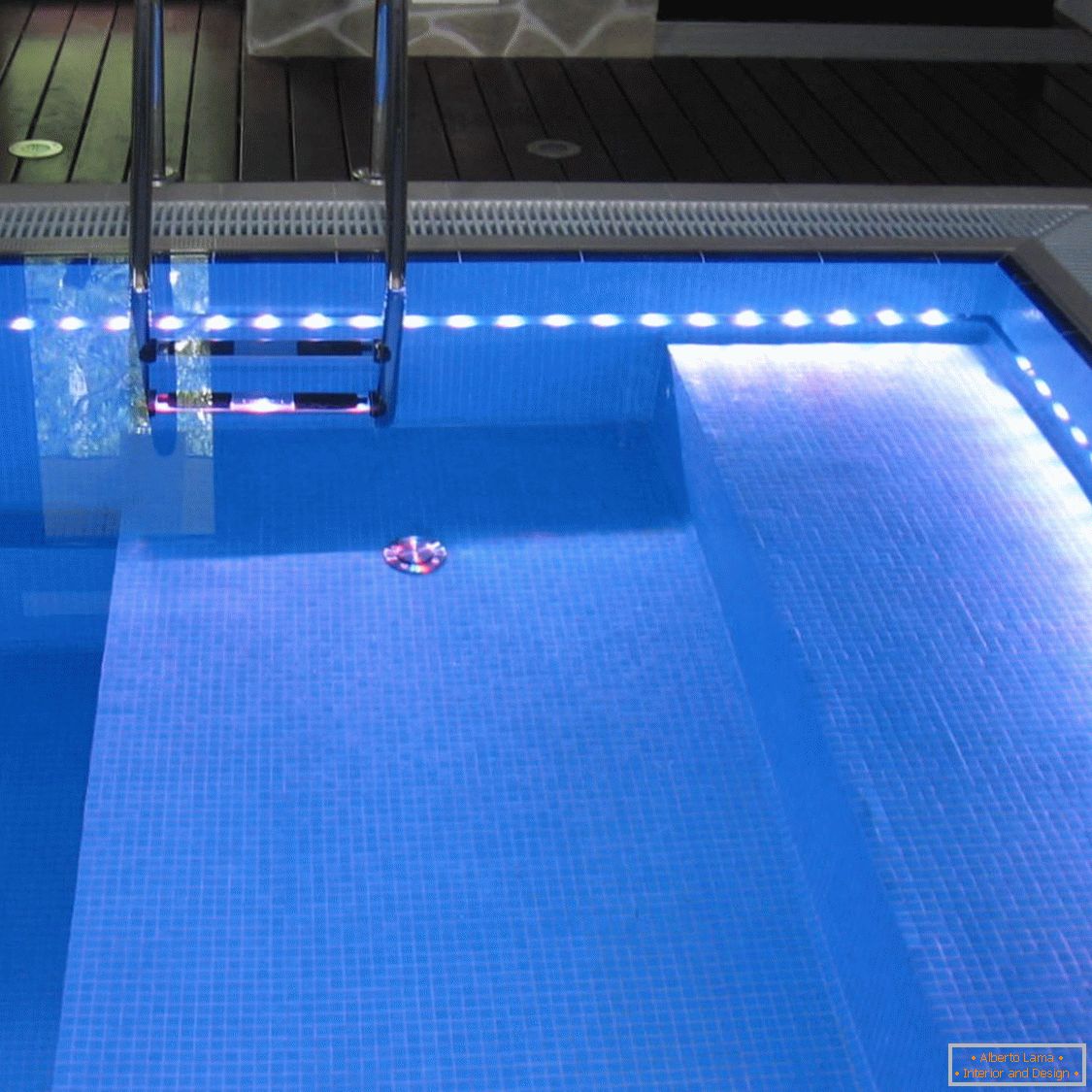
An interesting move is the contour highlighting - the optical fiber is mounted around the perimeter of the reservoir, allowing you to navigate well in the dark. The illumination looks beautiful - it exists in color, with many different effects. With the help of specially selected lamps with computer control, over the pool it is possible to create a whole light show. Mounting underwater lights, you should consider the maximum depth they were originally designed.
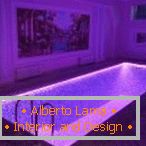
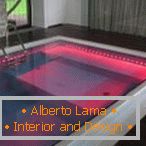

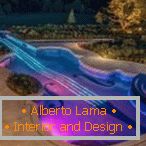
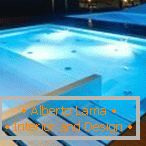
Materials and methods for finishing for different styles
For different styles of landscape, interior, water reservoir design is assumed different:
- for the style of country, rustic will suit a simple square with a wooden bath on the beach, laid out with a figured tile;
- classical simple forms - a square, a rectangle, an oval. It is laid out with small tiles from the inside, the banks are also made of tiles, the canopy often rests on the columns;
- in the Art Nouveau style, high-tech, it is necessary to take care of a large amount of illumination - on the banks, under the water;
- Loft design involves interior decoration of natural stone, the outer - from solid wood;
- For minimalism, a round metal or concrete pool is made, with the most uniform finish;
- if the reservoir of eco-style is located indoors, then it is equipped with panoramic windows, on the street - with shores from a large natural pebble. Any "wrong" form is preferable.
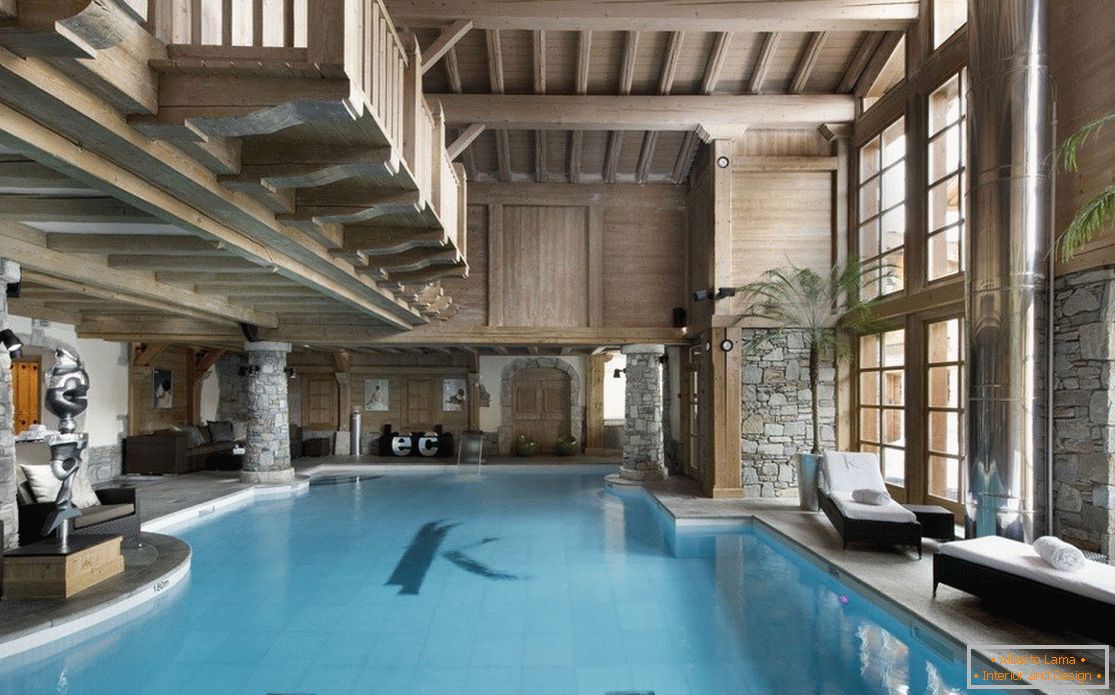
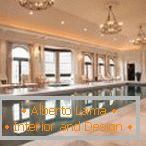
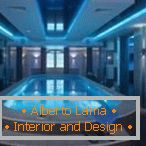
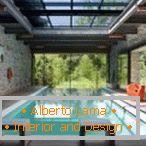
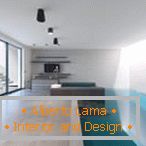
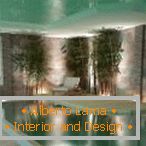
Additional equipment of the pool
Additional equipment includes:
- single-layer, multilayer water filters - to keep it clean, transparent, not "blooming." It is held at least once a day;
- disinfecting equipment - inhibits the multiplication of pathogens by maintaining a certain chemical composition of water. These include: chlorine dispensers, ozonizers, ionizers, ultraviolet plants;
- pumps for water supply - connected with filters. There are with normal suction, self-priming, used for rides, hydromassage;
- devices for heating - solar collectors, heat exchangers, instantaneous water heaters;
- control units - enable / disable all available equipment, are programmed manually;
- pipes, skimmers, nozzles, plums - without them it is impossible to equip the pool;
- manual and robotic vacuum cleaners - remove large debris from the water, clean the walls, the bottom;
- special bedspreads - for shelter at the time of departure, at night, so as not to get dirt, there was no excessive evaporation;
- Stairs, handrails, dividing paths - provide safety of descent-lifting;
- lighting - light is needed for beauty, as well as bathing in the dark;
- attractions - geysers, slides, fountains, waterfalls.
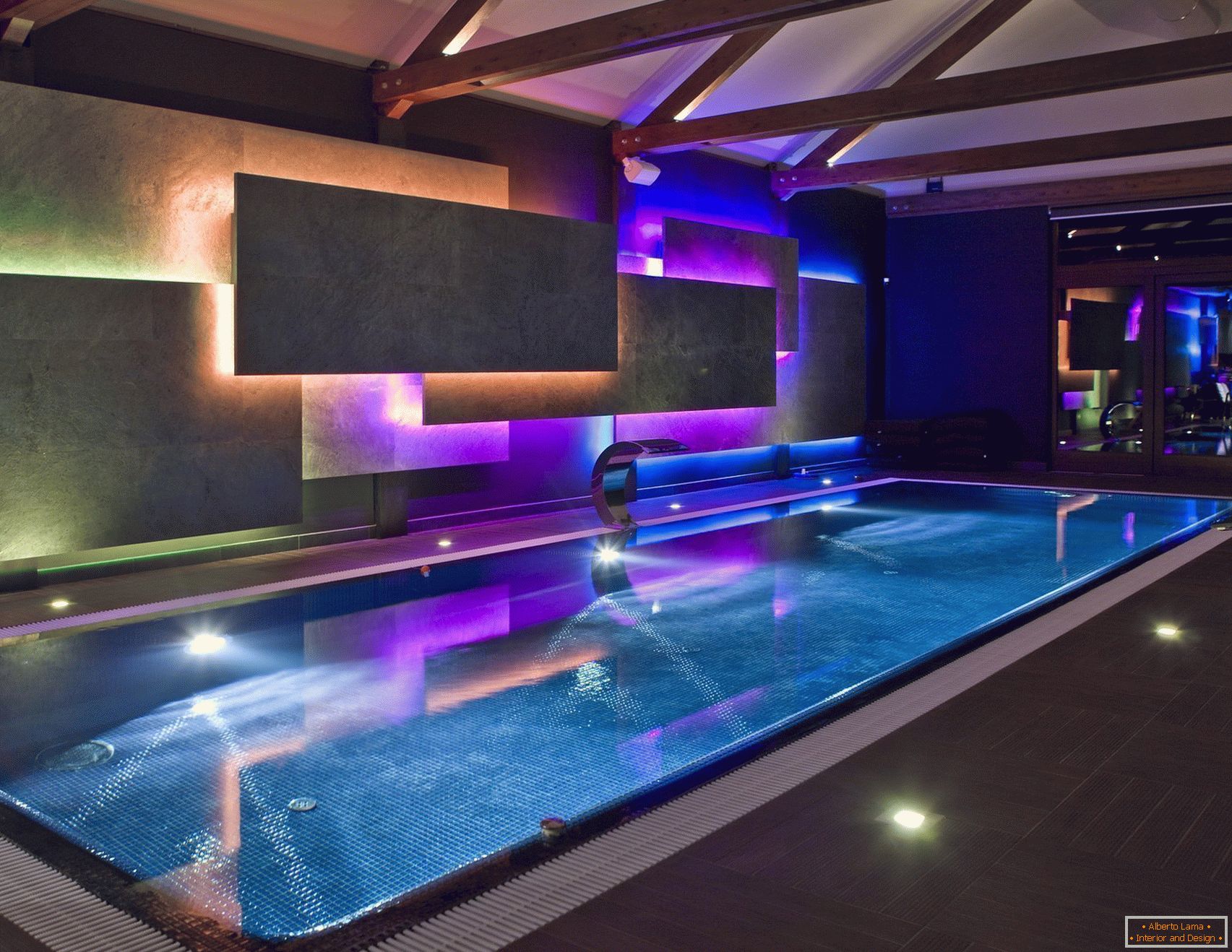
The installation of most types of equipment is very time-consuming, so if difficulties arise, you should contact the professionals for help.
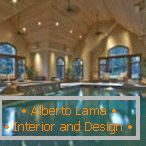
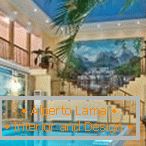

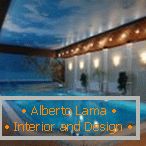
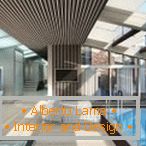
Filtration of water
With the help of filters, the water is mechanically purified. To obtain a clean, transparent, filters are used along with disinfecting systems. The equipment is connected to a pump, through which water circulates. Many manufacturers implement all of the above in one package.
To select a suitable capacity filter, you should estimate the pool volume - all available water must undergo a full cleaning cycle 3-6 times a day, depending on the number of bathers. A good filtration system significantly reduces the consumption of chemicals used for decontamination.
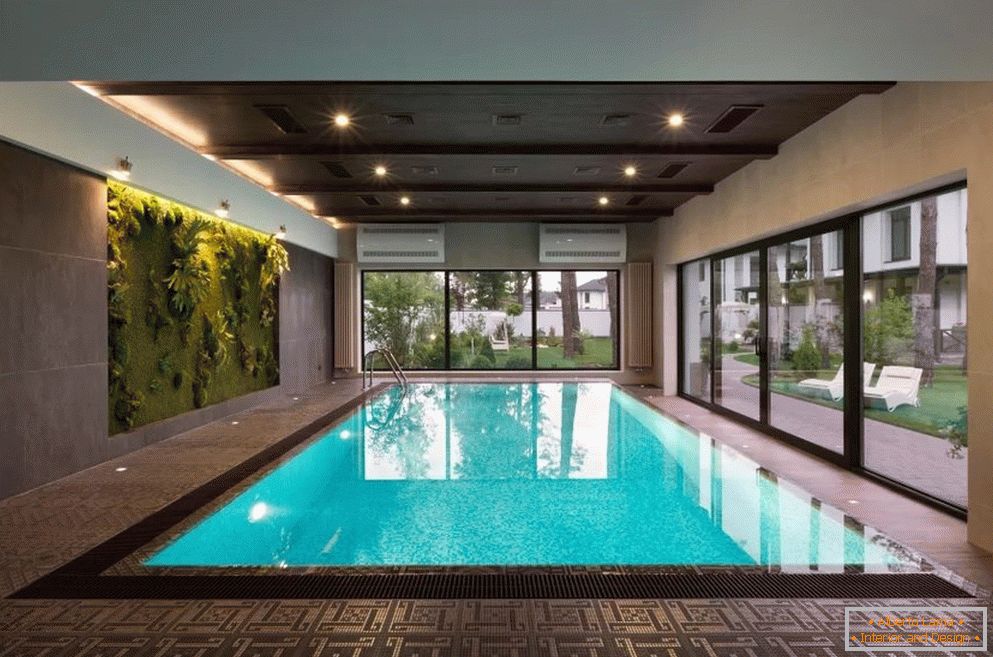
Filters are of the following types:
- sandy - have a small cost, large dimensions, the quality of cleaning depends on the size of sand fractions. It looks like a big barrel with sand;
- cartridge hinged - usually cling to the edge of the structure, plunging into the water. Are used for frame, inflatable, children's reservoirs;
- diatoms - have the highest degree of purification, as a filler used diatomaceous earth, beneficial effect on the human body. For the correct operation of such a filter, good water circulation is necessary.

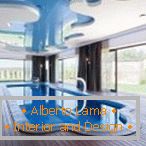
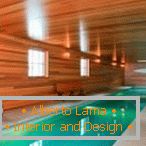
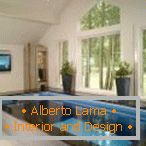
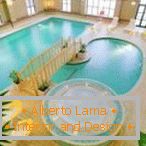
Aqua entertainment
In the presence of free space, a whole sports complex is built on the street for children, adults - water entertainments, recreation, have a chance to become the main ones.
Most often set:
- slides;
- towers;
- springboards;
- waterfalls;
- fountains;
- Jacuzzi.
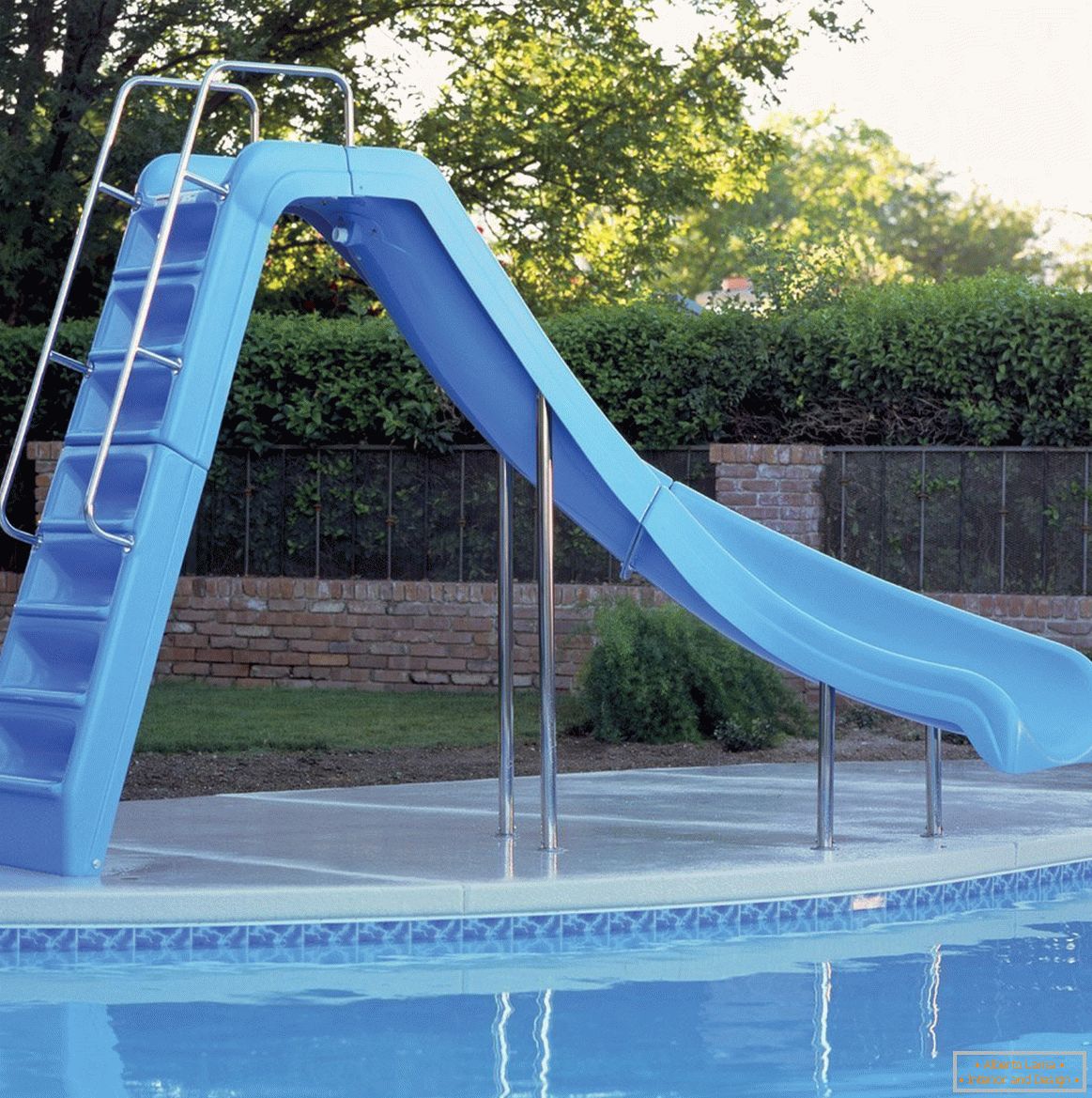
When installing a slide, pedestal, springboard, a height of more than half a meter, the depth of the reservoir in the area of this place is 2.4-3.2 meters. If it is planned to equip a tower up to five meters in height, then a depth of at least 4.3-5.2 meters is also made. For diving, practicing water polo, requires a depth of 1.7-2.1 m.
A private pool for diving training is made from a depth of 4.5 meters, extensive in area - it is often decorated with artificial grottos, caves. Amateurs install a variety of equipment that can create waves on the surface, underwater currents. The reservoir for surfing is located away from the house, outbuildings, since the wave height in it is quite large, and the depth is also required from four meters.
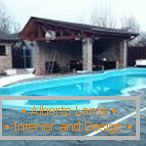
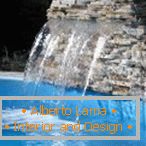
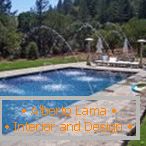
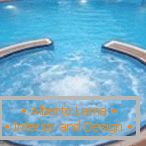
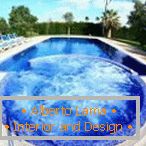
Conclusion
According to statistics, in Western countries, for every 200-300 people, there is at least one basin, in Russia - one for 15,000-20,000 people. The number of small bodies of water annually increases, due to their arrangement in private cottages, on individual countryside plots. Pools are sometimes built, ennobled with their own hands, but most often the owners of the house or dacha turn to professional designers specializing in the design of such water bodies.

